Faculty/Staff Directory
Search Results
In most cases, please use the last 4 digits of the listed phone numbers when calling from any campus.
A B C D H L M N P S W Z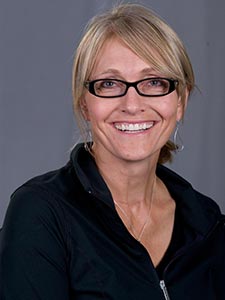

Adjunct Faculty
Gerontology
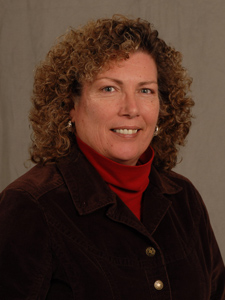

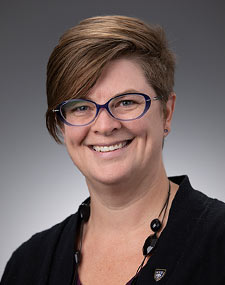


Adjunct Faculty
Psychology


Adjunct Faculty
Psychology
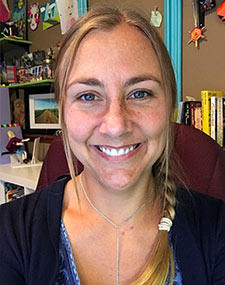
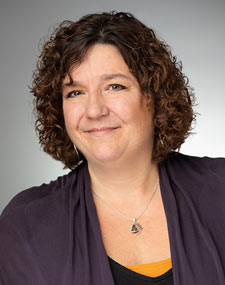
Coordinator, School of Art & Science Admin
SAL Admin
Office: S2103
Phone: (218) 723-6055
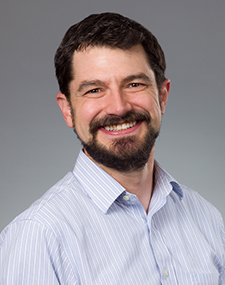
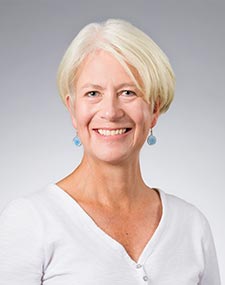
Instructional Design-Faculty Support Mgr
Center for Instructional Design
Office: S1222A
Phone: (218) 723-7095
View Site
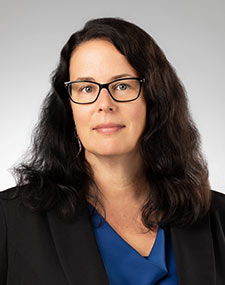
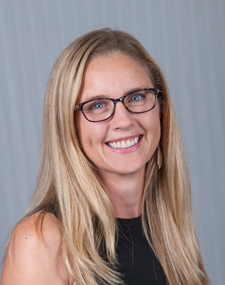
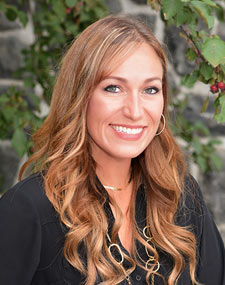
Assoc. VP of Enrollment Mgmt.
Graduate & Non-Trad Enrollment
Office: S3212D
Phone: (218) 733-2240
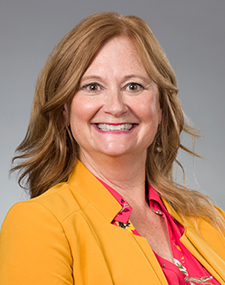
Professor, PSY/Dir, Women & Gender Studies
Psychology
Office: T3645
Phone: (218) 723-6595
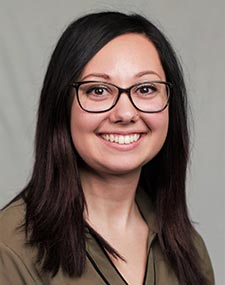


Laurie Anderson,
I teach Lifespan Developmental Psychology and Social Psychology. Prior to counseling and teaching at CSS, I ran an alternative learning program for high risk adolescents and worked with inmates at several institutions within the Federal Bureau of Prisons. My areas of interest include lifespan development, personal wellness, and issues of grief and loss.

MaryAlice Carlson, M.A.
My area of specialty is counseling psychology. I have a Master's Degree in Educational Psychology. I am interested in research dealing with emotions, grief, and bereavement. Since 1999 I have been adjunct Faculty at the college of St. Scholastica, and was hired fulltime as an Instructor in 2008 I teach four courses in the Psychology Department including; Intro to Counseling, Abnormal Psychology, Group Dynamics, and Lifespan Developmental Psychology. My teaching philosophy is based on a quote by Aristotle, "Educating the mind without educating the heart is no education at all." The materials covered in each course must be applicable to real life in order for significant learning to occur. Education should not be merely intellectual knowledge but heart knowledge that aids in the further development of personal values and a moral compass.

Audrey Devine Eller, PhD
I am a cultural sociologist with interests in education and criminology. My research focus is on teenagers' transitions in and out of educational and carceral systems. I study how daily interactions reproduce or disrupt inequalities. Currently, I'm writing about how high school students make post-secondary decisions (such as where and whether to go to college). This research is based on more than six years of NSF-funded qualitative research in New Jersey high schools. I am an Assistant Professor of Sociology in the School of Sciences. Before coming here, I was visiting assistant professor in the Department of Sociology at Grinnell College. I received my Ph.D. in 2012 from the Department of Sociology at Rutgers University, with a graduate certificate in Women's and Gender Studies, and my BA in philosophy and sociology from Seattle University.
I primarily teach Statistics and General Sociology, with Dignitas, Self & Society, and Critical Criminology when scheduling permits. Find out more about me at audreydevineeller.com.
Taylor Hazelbaker, PhD
Dr. Hazelbaker is a developmental psychologist with teaching and research interests at the intersection of psychology and education. At The College of St. Scholastica, she primarily teaches Lifespan Developmental Psychology and Statistics. Her research, conducted in collaboration with undergraduate students, explores how children develop their social identities and learn about different social groups based on factors like race, ethnicity, religion, and social class. She also investigates how proximal and distal factors, including messages from parents and teachers and exposure to cultural ideologies like colorblindness, shape children’s understanding of themselves and others. Her recent research explores the development of anti-racism among White children and youth. She collaborates with the McNair Scholars Program at The College and is always eager for new students to join her research lab.
Dr. Hazelbaker’s research has been published in journals including American Psychologist, Journal of Social Issues, Social Development and Journal of Family Issues. She is an engaged member of the Society for Research in Child Development and currently serves on the society’s anti-racism taskforce. Dr. Hazelbaker earned a B.A. in Psychology and Elementary Education from the University of St. Thomas and a M.A. and Ph.D. in Human Development and Psychology from the University of California, Los Angeles.

Gerald Henkel-Johnson, PsyD, LP
I am an Associate Professor and chair of the Department of Psychology and Sociology. I hold a Psychology Doctorate (Psy.D.) and am a Licensed Psychologist with specialty areas in clinical and counseling psychology, though I consider broad academic knowledge of psychology to be an essential foundation for psychology applications. My particular specialty is in psychological evaluations of adults with a history of criminal behavior and/or threatened violence. In the latter, my applied and research foci are on the psychological effects of trauma; dynamics of psychopathy; violence risk assessment for sexual and nonsexual offenders, competency to stand trial, and insanity defense. My teaching philosophy involves promotion of knowledge through students taking responsibility for coming to class prepared as well as using class time to explore applications of the material in students’ lives and via clinical case examples.

Julie Luker, Ed.D.
Dr. Luker is a higher education professor and social sciences researcher. She teaches as an adjunct professor for the College. Dr. Luker has almost 20 years of higher education experience, including administration, admissions, advising, consulting, and teaching. Her educational background is in Psychology and Education.

Thomas Motl, PhD, LP
Dr. Motl is originally from Texas, receiving his B.A. from Southwestern University in Georgetown, TX before earning his M.S. and Ph.D. from the University of Kansas. Dr. Motl completed his doctoral internship and postdoctoral residency in the VA system, developing a specialization in the treatment of PTSD. His research explores how emotions inform decisions, Veteran experiences on campus, and constructs related to third-wave behavioral therapies. He is a Licensed Psychologist in Wisconsin. Throughout his career, he has taught a number of classes at both the graduate and undergraduate level, including Personality Psychology, Abnormal Psychology, Statistics and History & Systems of Psychology.

Amy Nelson, PhD
Dr. Nelson has significant experience teaching and designing instruction for face-to-face, hybrid and online learning. She has worked with many organizations, including non-profit, for-profit and public colleges, as well as public and private businesses across the U.S.
She has served as a peer evaluator for HLC, led several accreditation projects, and has taught and managed quality improvement initiatives for several organizations. She earned a MS in Educational Change from Walden University and PhD in Instructional Design from Capella University, both online.
Her strong background in competency-based performance improvement and wealth of experience teaching and designing instruction allows her to help faculty design courses that both students and faculty enjoy.

Nicole Nowak Saenz, Ph.D.
I am currently an Associate Professor of Psychology. I was born and raised in northeastern Minnesota. I earned a Bachelor of Applied Science in Psychology from the University of Minnesota Duluth, followed by a MA and PhD in Cognitive and Behavioral Neuroscience (Minor: Quantitative Methods) from Wayne State University.
My teaching experience includes Biological Psychology; Drugs, Brain, and Behavior; Cognitive Psychology; Clinical Neuropsychology; Human Sexuality; Evolutionary Psychology; Statistics; Research Methods; Empirical Psychology capstone; Introduction to Psychology; and The Science of Happiness.
In the first decade of my research career, I investigated the relationships between human spatial navigation and biological sex, age, hormones (e.g., testosterone, estradiol), genetic polymorphisms related to sex hormone receptors, and structural and functional neuroanatomical properties.
I also have a research background in human ethology. Most of this work comes from a rich cross-cultural sample of marriage and relationship related data that span several decades. My role in this collaborative international group has primarily been to investigate cross-cultural predictors of infidelity, and the role of humor in marital satisfaction.
Recently I have expanded my research to include resilience in college students, video gaming behavior in children and young adults, and effects of exposure to nature on psychological factors. I am usually accepting new research students.

Karen Petersen, Ph.D.
I am currently an Associate Professor of Psychology in the School of Sciences, trained as a clinical health psychologist at the University of Pittsburgh. I currently teach statistics, biopsychology, health psychology and empirical research. My particular area of research focus is on psychosocial correlates of cardiovascular disease, including SES effects on immune parameters. I have also been involved in research on stress and pain, and am currently researching the role of dispositional mindfulness in health behaviors.

Debra Schroeder, Ph.D.
My specialty area, and one of my favorite courses to teach, is Social Psychology. Social psychologists use the scientific method to study how people think about, interact with, and relate to others. Topics include attitude formation and change; errors in social thinking; conformity and obedience; situational, cultural, gender, and evolutionary influences on behavior; prejudice and discrimination; and helping behavior. Additionally, I teach General Psychology, Statistics, Psychology of Gender, and Honors Psychology of Sexuality.
Teaching, research, and service are all important to the life of an academic. My research related to social psychology primarily has been in two areas: (1) the role of gender in mentor/advisor relationships at the undergraduate and graduate levels and (2) relationships between perfectionism and physical health, with daily hassles as a moderating and mediating variable. As the Honors Director, I also have done research regarding professional and personal outcomes of honors students, activities of honors directors, and extra-curricular programming in honors. Conference presentations and journal articles have resulted form these endeavors.
However, at Scholastica, consistent with my professional interests and personal desires, teaching and learning are the major focuses of what we do. In the classroom, I try to use research-derived principles to provide guidance as to how students learn, and examine their implications for how I teach my courses. One of these principles is helping students to form cognitive schemas or organizing frameworks for the material they are learning--I think that doing this satisfies students' desire for clarity of presentation. Without schemas, new knowledge is experienced as unrelated bits of information, rather than information that can be viewed as a coherent whole. A second principle is that effortful processing of material facilitates learning. I model this by introducing concepts, often giving examples from my life that illustrate the concepts, and then explaining how the concepts and examples relate. I encourage effortful processing through questions I ask in class, writing assignments, and group discussions. A third principle is that learning is demonstrated best when performance standards are clear, high, and developmentally appropriate. There is little that bothers students more than lack of clarity about what they are supposed to do. They can tolerate high standards as long as those standards are clear, although it is important to remember that there are differences between first-year students and seniors in terms of what they can be expected to do. A fourth principle is that fast, constructive feedback is essential to student learning. Well, I try . . . A fifth principle, based on my own research, is that interpersonal factors such as professors’ enthusiasm, respectful treatment of students, sense of humor, and beliefs in their abilities tend to be better predictors of student satisfaction (important to performance) with their instructors than professors' expertise (which is rarely questioned). So, I try to be professional and personable even when I'm having an "off-day." Finally, you can teach an old dog new tricks, including in the classroom, so I try constantly to learn from research and my wonderful colleagues about how to be a more effective teacher.

Anna Semanko, PhD
Dr. Semanko is a social psychologist, enchanted by the curiosity, dedication, and enthusiasm of undergraduate students and the college environment. Dr. Semanko completed her bachelor’s degree at Hamline University, majoring in Psychology with a double minor in Education and Philosophy. She earned an M.S. and Ph.D. in Social/Health Psychology from North Dakota State University, with emphasis in Social-Organizational applications.
Dr. Semanko’s current research highlights two independent subjects of interest to undergraduate students: 1) decisions and behaviors related to romantic relationships and 2) teaching practices within the discipline of psychology. In collaboration with Dr. Semanko, students involved in her To Love and To Learn Lab fulfill integral roles in the research process, ranging from conceptualization to dissemination. Beyond research, the courses Dr. Semanko teaches also have an applied focus in aim of encouraging the use of course material in everyday life: Social Psychology (& Interactions), Motivating Meaningful Work: Industrial-Organizational Psychology, Research Methods, and General Psychology.
Dr. Semanko's research has been published in journals such as Current Psychology, Journal of Behavioral and Social Sciences, Teaching of Psychology, Journal of College Science Teaching, and Journal for STEM Education Research. She regularly presents research at conferences such as the Society for Personality and Social Psychology and Midwest Psychological Association, often with students as co-authors. Dr. Semanko's dedication to mentoring and passion for teaching has been recognized by excellence in teaching awards (2020, 2023) and several small grants to support competitive research and research collaborations with undergraduate students.
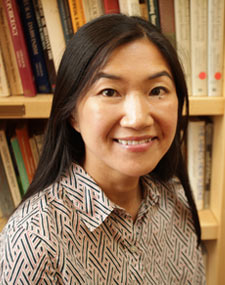
Hsin Mei Sun, PhD
I am a cognitive psychologist who is interested in how contextual information affects the way we perceive and interact with the world. I address these questions by examining the influences of perceptual and social context on various cognitive functions, such as visual memory, object recognition, selective attention, consciousness, and goal-directed action. I use both behavioral and electrophysiological (ERP/EEG) methods to study these topics. I have a PhD in Cognitive Psychology. At the College of St. Scholastica, I teach Statistics, Research Methods, and Cognitive Psychology.
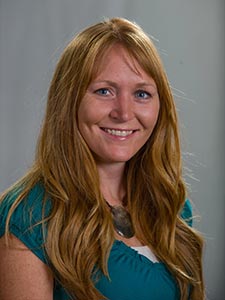
Shawna Weaver, PhD
Dr. Weaver spent ten years in education and mental health before teaching in the psychology department at CSS. She practiced mental health in residential treatment settings including facilities for chemical dependency, eating disorders, and trauma recovery. As a school counselor, she worked with middle and high school students and coached tennis and basketball. (She has researched alternative treatments for addiction disorders, and completed her dissertation on the potential for nature-based therapy. (Dr. Weaver currently directs a nonprofit mental health counseling center called DeepRock Ecotherapy and Wellness.(She has published in the Journal of Sustainability Education, and co-authored a book chapter in an upcoming Oxford University textbook. Presentations and publications can be accessed on the DeepRock website.
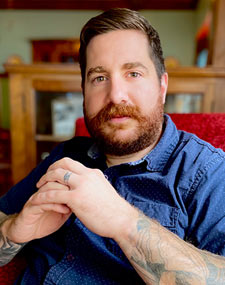
Colin Zestcott, PhD
Dr. Zestcott is a social psychologist who examines how implicit prejudice and stereotyping contribute to health disparities and solutions for bias reduction in health care settings. In addition, he studies the manifestation of bias toward individuals with tattoos and the role of the physical body and metaphor in decision making. Dr. Zestcott received a PhD and MA in social psychology from the University of Arizona and a BA in psychology from Macalester College.
Currently at CSS, Dr. Zestcott teaches General Psychology, Social Psychology, and Research Methods.
For more information about Dr. Zestcott and the Social Cognition Lab, please visit www.zestcott.com

